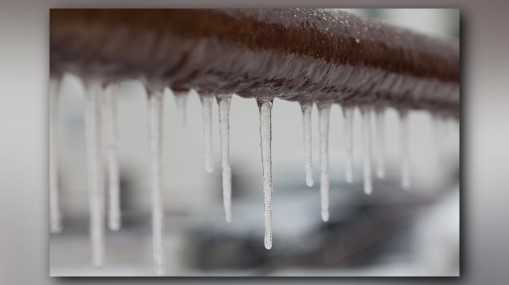Ways to Defend Plumbing System from Cold Weather: Critical Strategies
Ways to Defend Plumbing System from Cold Weather: Critical Strategies
Blog Article
We've unearthed this great article pertaining to Winter Plumbing Precautions: Preventing Frozen Pipes down the page on the web and figured it made perfect sense to discuss it with you on this site.

Cold weather can damage your pipes, especially by freezing pipelines. Right here's just how to stop it from happening and what to do if it does.
Introduction
As temperatures decrease, the threat of frozen pipes boosts, potentially causing pricey repair services and water damages. Understanding exactly how to stop icy pipes is critical for homeowners in cold environments.
Avoidance Tips
Shielding at risk pipelines
Wrap pipes in insulation sleeves or utilize warmth tape to safeguard them from freezing temperatures. Concentrate on pipes in unheated or outside areas of the home.
Home heating techniques
Maintain interior areas properly warmed, particularly locations with plumbing. Open cabinet doors to enable cozy air to flow around pipes under sinks.
Exactly how to recognize icy pipes
Search for reduced water circulation from taps, uncommon smells or sounds from pipelines, and visible frost on subjected pipelines.
Long-Term Solutions
Architectural changes
Take into consideration rerouting pipelines far from outside wall surfaces or unheated areas. Add additional insulation to attics, basements, and crawl spaces.
Updating insulation
Buy high-grade insulation for pipelines, attic rooms, and walls. Proper insulation helps keep constant temperatures and reduces the threat of icy pipes.
Shielding Outside Plumbing
Yard pipes and outdoor taps
Disconnect and drain garden hoses prior to winter months. Set up frost-proof spigots or cover outdoor taps with shielded caps.
Understanding Icy Pipes
What causes pipelines to ice up?
Pipes ice up when subjected to temperature levels listed below 32 ° F (0 ° C) for expanded periods. As water inside the pipelines ices up, it increases, taxing the pipeline walls and potentially creating them to break.
Risks and problems
Frozen pipes can cause supply of water interruptions, home damage, and costly repair services. Ruptured pipes can flood homes and cause substantial architectural damages.
Indications of Frozen Pipeline
Identifying icy pipelines early can avoid them from bursting.
What to Do If Your Pipelines Freeze
Immediate activities to take
If you think frozen pipelines, keep taps available to alleviate stress as the ice melts. Utilize a hairdryer or towels soaked in warm water to thaw pipes gradually.
Conclusion
Preventing icy pipes calls for aggressive steps and quick feedbacks. By comprehending the causes, indicators, and preventive measures, house owners can shield their plumbing throughout cold weather.
Helpful Tips to Prevent Frozen Pipes this Winter
UNDERSTANDING THE BASICS: WHY PIPES FREEZE AND WHY IT’S A PROBLEM
Water freezing inside pipes is common during the winter months, but understanding why pipes freeze, and the potential problems it can cause is crucial in preventing such incidents. This section will delve into the basics of why pipes freeze and the associated problems that may arise.
THE SCIENCE BEHIND FROZEN PIPES
When water reaches freezing temperatures, it undergoes a physical transformation and solidifies into ice. This expansion of water as it freezes is the primary reason pipes can burst. As the water inside the pipe freezes, it expands, creating immense pressure on the walls. If the pressure becomes too great, the pipe can crack or rupture, leading to leaks and water damage.
FACTORS THAT CONTRIBUTE TO PIPE FREEZING
Low Temperatures: Extremely cold weather, especially below freezing, increases the risk of pipes freezing. Uninsulated or Poorly Insulated Pipes: Pipes located in unheated areas, such as basements, crawl spaces, or attics, are more prone to freezing. Insufficient insulation or lack of insulation altogether exacerbates the problem. Exterior Wall Exposure: Pipes running along exterior walls are susceptible to freezing as they encounter colder temperatures outside. Lack of Heating or Temperature Regulation: Inadequate heating or inconsistent temperature control in your home can contribute to frozen pipes. PROBLEMS CAUSED BY FROZEN PIPES
- Pipe Bursting: As mentioned earlier, the expansion of water as it freezes can cause pipes to burst, resulting in significant water damage.
- Water Damage: When pipes burst, it can lead to flooding and water damage to your property, including walls, ceilings, flooring, and personal belongings.
- Structural Damage: Prolonged exposure to water from burst pipes can compromise the structural integrity of your home, leading to costly repairs.
- Mold and Mildew Growth: Excess moisture from water damage can create a favorable environment for mold and mildew growth, posing health risks to occupants.
- Disrupted Water Supply: Frozen pipes can also result in a complete or partial loss of water supply until the issue is resolved.
WHY CERTAIN PIPES ARE MORE PRONE TO FREEZING
- Location: Pipes located in unheated or poorly insulated areas, such as basements, crawl spaces, attics, or exterior walls, are at higher risk of freezing.
- Exterior Pipes: Outdoor pipes, such as those used for irrigation or exposed plumbing, are particularly vulnerable to freezing as they are directly exposed to the elements.
- Supply Lines: Pipes that carry water from the main water supply into your home, including the main water line, are critical to protect as freezing in these lines can affect your entire plumbing system.
- Underground Pipes: Pipes buried underground, such as those connected to sprinkler systems or outdoor faucets, can be susceptible to freezing if not properly insulated.
https://busybusy.com/blog/helpful-tips-to-prevent-frozen-pipes-this-winter/

Hopefully you liked our part on Helpful Tips to Prevent Frozen Pipes this Winter. Thank you so much for taking time to browse our piece of content. Those who appreciated our post plz don't forget to share it. Thank you for your time spent reading it.
Schedule Estimate Report this page